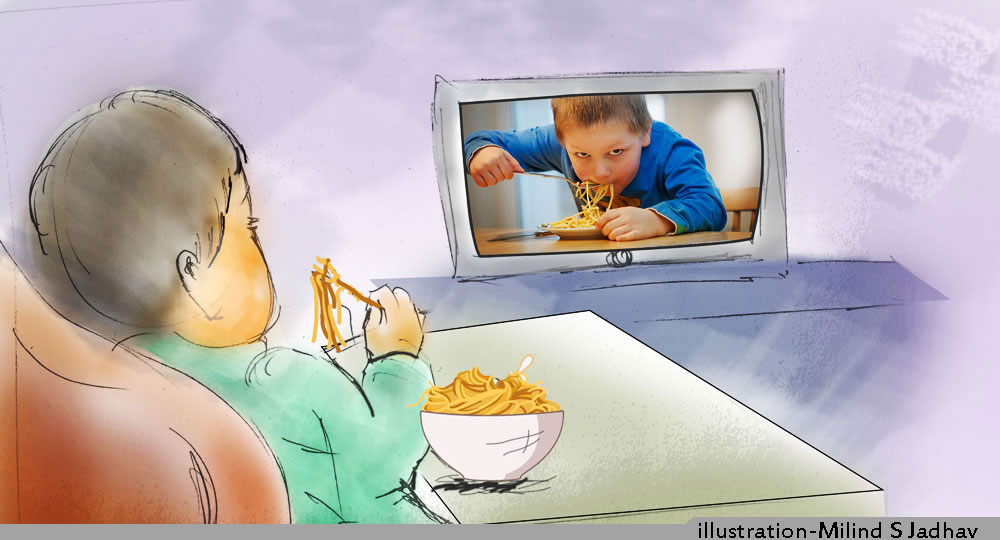
Obesity among adults and children is a huge problem in these days. A study which gauged the correlation between media and childhood obesity was published in the International Journal of Indian Psychology in June 2017.
Increased consumption of fast food, sugar laden fizzy drinks, lack of physical activity and largely sedentary lifestyle comprising of watching television, playing video or computer games, playing on mobile phones and tablets due to the changing urban lifestyle are the major causes of childhood obesity the study stated.
“Childhood obesity is a real problem. It is generally caused due to multiple reasons such as physical inactivity among these kids, which ideally means more screen time. Excess amount of time spent watching TV could result in obesity,” said Dr Jayashree Todkar, Practising Bariatric and Laparoscopic Surgeon.
A major portion of a child’s time is spent playing video games and watching television rendering less time for them to be physically active. Further, there is considerable advertising and promotion of calorie rich, food products which are poor in nutrients. Food manufacturing companies promote high-sugar; high-fat foods appear during children’s programmes the study explained.
“Sedentary lifestyle among kids results in obesity,” added Dr Todkar.
Understanding the impact of food habits and its connection with TV was a central point of the study. The study said that a large number of children had a screen time of more than five hours per day and several watched television while eating, many children had TV in their bed rooms, most had Internet access and nearly everyone played video games daily. Easy accessibility of TV, smart phones and Internet has a strong relationship with childhood obesity and being overweight
“Kids are very vulnerable. These ads aim to attract them. The idea of these ads is to sell them products as an appealing package, but most of these products contain high calories,” said Dr Todkar.
Addiction to cell phones or TV is a common problem in many households, say experts. “TV is a medium which has an immense impact on kids. Messages from the media get imbibed in the kids very easily and that just stays in their head. It is best to keep kids away from such mediums,” said Dr Samir Dalwai, President of Indian Academy of Paediatrics- Mumbai Chapter, consulting child developmental paediatrician and Founder of New Horizons Child Development Centre (NHCDC).
In the absence of regulations restricting on food advertisements aimed at children, reduction in television viewing is a promising approach to reducing excess energy intake. Children are exposed to numerous verbal and non-verbal messages about food from the media, with television and advertising in particular being the largest single media source of these messages the study added.
The study was conducted among 200 children aged between 7-12 years, attending a Public school in Gurgaon, Delhi. The study included the Body- Mass Index (BMI) assessment, which is the measurement of height and weight.


